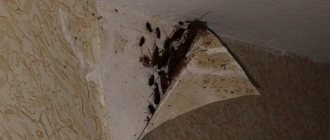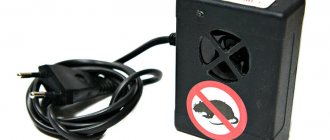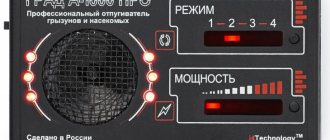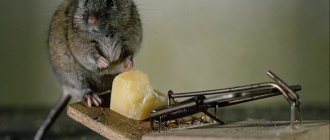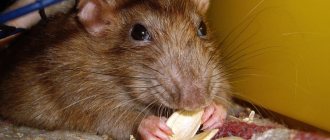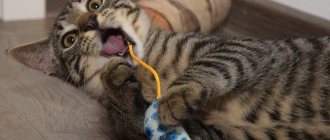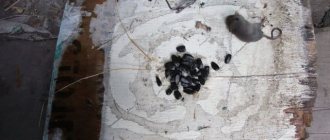How to get rid of mice in the house
Traps and poisons are effective, but inhumane ways to combat
Mice in the house - unwanted guests, whom they try to get rid of as quickly as possible. They spoil food and furniture, can become sources of dangerous diseases and spread an unpleasant odor.
There are a large number of ways to get rid of rodents, but they are all divided into 2 types:
- Scaring off with strong pungent odors or ultrasound, getting a cat (fear of cats is inherent in rodents by nature). The mice leave the apartment and do not return. This is a more humane option for the animals, but it does not always work. For example, mice may get used to ultrasound and be in no hurry to leave;
- Destruction by chemical poisons (for example, Dichlorvos), folk recipes or traps. These are more radical methods in which rodents are completely destroyed. However, these options can hardly be called pleasant: it is necessary to remove the corpses of animals, some may have time to hide and begin to decompose.
Important! To solve the problem, some manufacturers produce poisons with a mummifying effect (the corpse does not decompose, but dries out, there is no smell) or products whose action is based on suffocation (mice run out into the street in panic).
When choosing how to repel mice, it is important to take into account many nuances: the presence of children and pets in the house (they may accidentally swallow poisonous bait), the ability to quickly find corpses before they begin to decompose, accommodation of allergy sufferers who may not be suitable for repellers with strong odors, etc.
Prevention of mouse infestations
If you have gotten rid of rodents, there is no need to relax. They may visit your home again. Therefore, try to follow a number of simple rules:
- Store products in refrigerators or closed containers out of reach of mice.
- The apartment must be in immaculately clean condition.
- If the house (apartment) is old, then seal all the holes and openings so that “not a single mouse gets through.”
- Place wormwood, mint, or cotton balls soaked in essential oil in the corners.
- Get a mustachioed hunter cat.
Important: If you notice the smell or traces of mice, do not hesitate. You need to take action right away, since the females are very fertile and getting rid of a large mouse family will subsequently be much more difficult.
Sometimes mice cause us sympathy, because they are so cute and fluffy, they have funny habits. There are hobbyists who keep pet mice. But remember that they carry dangerous diseases such as tularemia, leptospirosis, salmonellosis and others. In addition, they need to constantly grind down their incisors, so mice chew on everything: furniture, wires, walls, floors. Their appearance in the house is associated with a lot of troubles. And the methods you just read about will allow you to get rid of “uninvited guests.”
Sources
- https://vrediteli.info/zapahi-protiv-mishey/
- https://GdeKlop.ru/krysy/izbavitsya-pri-pomoshhi-zapahov/
- https://kitchendecorium.ru/posts/kak-otpugnut-myshej-ot-kvartiry-i-doma-s-pomoshhyu-zapaxov.html
- https://parazitdoma.ru/krysy-i-myshi/kakoy-zapah-ne-lyubyat-myshi
- https://kursi-floristiki.ru/tarakany/kakoj-zapah-ne-lyubyat-myshi.html
- https://www.ivd.ru/dizajn-i-dekor/zagorodnyj-dom/kakoj-zapah-v-dome-otpugivaet-myshej-izbavlyaemsya-ot-gryzunov-bystro-i-bezopasno-55741
- https://OUborke.ru/chego-boyatsya-myshi
- https://poklopu.ru/krysy/chego-boyatsya-myshi-v-dome.html
- https://pestout.ru/domashnie-vrediteli/gryzuny/chego-boyatsya-myshi.html
[collapse]
Fragrant plants from mice
Cat scent is one of the most effective against rodents
Aromatherapy is one of the most humane, simple and effective methods to get rid of mice and rats. Compared to other methods, aromatherapy has several advantages:
- It is safer for humans than chemical poisons;
- Can be used in apartments with pets and pets;
- After disposal, no corpses remain, since the mice run away on their own;
- This is a cheaper and more pleasant remedy: just buy essential oil, collect fresh or dried plants, and plant them in the garden;
- Strong odors can be used as a preventive measure: for example, place fragrant plants on windows and near doors if your neighbors or in the basement have pests. This will allow you to drive away pests immediately, before they appear in the apartment.
What are mice afraid of in the house? Folk remedies advise using cat scent. Since cats are traditional natural enemies of rodents, the latter try not to appear in the habitat. If you can't get a cat, you can place used litter near the burrows or soak a rag in cat urine - both options will help repel pests, as they will smell like the enemy.
Mice are also afraid of snakes and hedgehogs: if hedgehogs have settled in the dacha, there will be no mice on the site.
Fresh and dry herbs
The pungent smell of wormwood will quickly drive away pests.
Rodents do not like the aroma of some plants at all. What grass do mice not like?
- Wormwood and tansy: both plants have an extremely pungent, irritating odor that can repel voles;
- Peppermint for mice: the safest plant for humans;
- Pharmaceutical chamomile: has the same effect;
- Elderberry: its roots secrete a strong poison that repels mice and rats;
- Swamp wild rosemary: contains poisonous oils; upon contact with it, a mouse dies;
- Dog tongue: has a negative effect on the nervous system of the animal, which tries to avoid the plant.
Mice repellent grass can be used in a variety of ways. You can place fresh herbs in corners, cabinets and near holes, use dry ones, or plant certain plants in the garden. It is important to remember that dry herbs have a less pronounced odor compared to fresh ones. Both fresh and dry plants need to be changed every 2-3 days to keep voles away for a long time.
Loud sounds
This factor is very specific: rats are really afraid of loud sounds, but it is inconvenient to use them in a living room. As an exception - loud music, in which pests will not dare to get out of their hiding places, but it is impossible to listen to it around the clock, and at night, in silence, the animals will calmly rule in the kitchen or basement.
On the other hand, rats are afraid of noise only until it becomes familiar to them. And they get used to different sounds quite quickly, especially if you try to scare rats often and regularly. Therefore, to scare away rodents, it is irrational to use ordinary sounds audible to humans.
On a note
Like most wild animals, rats, even indoors, are also afraid of quiet sounds - various rustles and creaks. This is understandable: in the wild, a predator always creeps up on its prey quietly, trying to make a minimum of sounds, and therefore the quiet crack of a broken twig under its paw or the rustling of leaves foreshadows great dangers for the rat.
At the same time, at large industrial enterprises - grain warehouses, transshipment depots, ports - rats calmly collect grain under trucks with running engines, run under rumbling conveyors with vegetables and nuts, and do not pay attention to noisy presses at oil extraction plants. They know that these particular noises do not pose any danger to them.
Essential oils
Essential oil has a more concentrated aroma
. Essential oils are more effective than fresh plants, since their smell is stronger and more pungent, and it no longer dissipates. What smell do mice hate?
- Peppermint, Japanese peppermint or menthol;
- Pharmaceutical chamomile;
- Sagebrush;
- Thyme;
- Coriander.
Important! When choosing a scent, it is worth considering that the essential oil will affect not only mice, but also people. For example, mint is contraindicated for people suffering from low blood pressure.
Essential oils can be used in different ways:
- Place 2-3 drops of oil on a rag and place it near the hole or in the places most popular with mice;
- Mix 50 ml of vegetable oil and a few drops (no more than 20) of essential oil, wipe with the mixture all the places where pests go;
- Mix 400 ml of water, 10 ml of alcohol and up to 15 drops of oil in a spray bottle, shake well and spray in corners and along the walls;
- Add a few drops of oil to soapy water for cleaning floors. Soap in this case is necessary to retain the smell.
As the smell evaporates (the aroma lasts from 2-3 to 5-7 days), it is necessary to update it.
How else can you get rid of mice from non-residential premises?
If rodents have settled in a barn or garage and are constantly attacking your food supplies, try to scare them away with the unpleasant odors of burnt fluff, burnt rubber, and mothballs.
Mice are not delighted with the aromas of cheap domestic perfumes, colognes, and kerosene.
All these aromas, of course, are difficult for humans to tolerate, but in order to get rid of the toothy pests, you will have to be patient - the mice will leave your shed after a few days.
As for the use of these odors in an apartment or living space, you must refrain from such experiments so that harmful substances do not enter your body.
Spices against rodents
Bay leaves should be placed in drawers, corners and mouse habitats.
In addition to plants and flowers, mice cannot tolerate the smell of spices. What smell repels mice?
- Bay leaves, coriander, cardamom, cilantro and cloves should be scattered in food boxes or brewed a strong decoction and thoroughly wiped down the furniture in the kitchen. You can also use the essential oils of these plants - mix them with water and alcohol or with vegetable oil and wipe the floor and furniture;
- Hot red pepper or chili pepper quickly dissipates, and therefore it is better to scatter it near holes and crevices. This will allow the aroma to immediately penetrate into the mouse passages, while the pests themselves will step into the seasoning, lick it off and get an upset stomach;
- Sage leaves can be finely crushed or set on fire and used to fumigate burrows and passages;
- The smell of freshly ground coffee, horseradish and garlic also irritates mice.
Important! Seasonings can be placed on the table and in drawers where food is stored, placed in corners and near likely passages.
Using the contents of the kitchen cabinet
If you don’t have a cat and don’t want to spend money on purchasing plant extracts, ordinary spices available in the arsenal of any housewife will help. The smell will help save supplies from the invasion of gray guests:
- carnations;
- coriander or cilantro;
- red pepper;
- sage;
It is allowed to use powder or seeds of these seasonings. Dry sage leaves, which are best burned, are also suitable. The strong aroma of coffee will also help repel rodents; freshly roasted beans work best.
Also, pests do not like the scent of vinegar, which can be poured into small containers and placed around the room. Although this option is more suitable for protecting cottages from rodents in the winter, since constantly inhaling a pungent odor is not only unpleasant, but also unsafe. The aroma of bleach scattered in the corners is also suitable for the same purpose.
Stronger odors
You need to wash the floors and wipe the furniture with a vinegar solution.
We are talking about more unpleasant, harsh aromas that people will not like. They will scare away mice from the apartment for a long time:
- Ammonia or ammonia. A little ammonia needs to be dripped into a container and placed near the entrance to the hole. You can also add 10 ml of ammonia to a liter of water, wash all surfaces (floors, tables, windowsills) with the solution;
- Vinegar: It is also used as ammonia;
- Birch tar from mice in the house, kerosene, gasoline, motor oil: these smells quickly make mice leave the place and run away for a long time. It is necessary to moisten the rag and leave it where rodents are most often. It is important to remember that these odors are difficult for humans to tolerate, and therefore it is better to move out of the apartment for a while. They are also perfect for repelling pests in non-residential premises;
- Bleaching: almost all pests cannot stand this smell. It is necessary to wash the floors 3-4 times a week using chlorine until the mice disappear completely.
But these are far from the most poisonous and toxic substances. Some options are not recommended for use in apartments due to their strong odor; they are suitable for cottages, cellars and attics. What poisonous smell are mice afraid of?
- Burnt fluff or wool;
- Naphthalene;
- Burnt rubber, such as tires;
- Colognes produced in the USSR;
- Smoke bomb or feed sulfur: they affect the mucous membranes of the mouth, nose and eyes of animals, poisoning them.
Before using strong agents, it is necessary to vacate the room from people and close it for 5-7 days so that there is no influx of fresh air. There is no need to ventilate the room; the smell should disappear on its own.
Important! When working with strong odors, it is necessary to protect the respiratory tract with a respirator or gas mask.
Chemical industry products for pest control
When choosing poisons, experts recommend focusing on where you plan to place the poison. This is explained by the fact that many chemicals are volatile, meaning they can enter the human respiratory tract. Therefore, they are used in places where people are extremely rare - warehouses, basements
If the premises are used to store food, it is important to ensure that poisons do not come into contact with them.
These chemicals can be found in the market today.
Krysid
The product is available in powder form. It has a negative effect on the hematopoiesis of domestic rats, which leads to their death within 12 hours after contact with the bait. For effective control, the substance is taken in small portions, which is not dangerous for humans. It is recommended to mix rats with food that attracts rodents. It is important to remember that pests quickly develop an addiction to this substance. Therefore, it can be used no more than once every two months.
Goliath
Recognized as the most effective, and most importantly, fast-acting remedy against rodents. Used by professional pest control agents. Rodents do not die immediately, which makes it possible to feed a large number of individuals with poison. The active remedy of Goliath causes rats to feel a lack of air, which forces them to leave the room and die outside the house.
Goliath has a mummifying effect
Mortorat
The composition of this drug includes brodifacoum, which leads to mummification of the animal after its death. The advantage of this process is that a person will not feel the smell of a corpse after the room has been treated. Mortorate is produced in briquettes, which should be laid out in increments of 5 meters from each other. Individual rodents die in about five days.
Rat death
The product contains a substance that negatively affects the blood composition of rodents. Just like Goliath, Rat Blend causes pet rats to leave the room to find air. The absence of external signs of food poisoning in animals allows one to avoid panic among other individuals of the clan. Accordingly, they continue to eat poisoned food. Adding antimicrobial substances and flavorings to the composition increases efficiency.
An effective method for eliminating unwanted “neighbors”
Nutcracker
Available in the form of flat balls with a jelly-like consistency. Suitable for use in premises of any purpose. Nutcracker does not change its properties even when used in conditions of high humidity.
“Nutcracker” is available in powder form
Ultrasound as a rodent repeller
Ultrasonic repellers are small but effective devices.
Ultrasonic devices are considered one of the most humane methods of control in relation to rodents. The operating principle of the devices is simple: they emit waves with frequencies above 20 kHz. A person does not hear sounds above this value, but rats perfectly pick up sound up to 40 kHz, mice - up to 100 kHz. This sound causes panic, fear and forces animals to leave an uninhabitable place.
The main advantage of ultrasonic repellents is the ability to drive away mice without killing them. In this case, all the individuals leave, after which they do not return, as the device continues to work. People, cats and dogs cannot hear sound.
Domestic rodents (hamsters, rats and mice) will hear the sound, it is better to take them away for a while.
The disadvantages of ultrasound repelling include:
- The ability of pests to adapt to the environment. That is, ultrasound may not have an effect on some individuals, and their descendants will no longer be afraid of it;
- Ultrasound operates only in a certain area, in addition, it is not able to overcome some obstacles, that is, you will have to buy several devices for different rooms;
- It is not uncommon to hear negative reviews indicating that ultrasonic devices do not work, mice remain in the house and are even running around the device. However, experiments show that animals react negatively to ultrasound, which means that most likely the problem is in the device itself.
The device must be installed in a room where rodents are most active. It is important to remember that soft materials absorb sound, hard materials reflect, meaning mice can hide behind them.
Important! Each floor will require a separate device, since ultrasound does not travel vertically. If there are a lot of rooms, it is worth buying several weaker devices instead of one powerful one.
Datura
Recent Entries
Lilac perennials that are beautiful, compact and do not crowd out other plants Why when buying seedlings you should not take the sellers’ word for it and how to determine the age of the plant using 3 signs Tomato seedlings have turned purple or whitish: why the color has changed and how to save the plants
Datura is a perennial herbaceous plant of the nightshade family, in the form of a shrub. Datura contains tropane, scopalamine, atropine, hyoscyamine - alkaloids that make it poisonous. A large number of toxic substances are contained in seeds and flowers. Grain soaked in a decoction of above-ground parts of the plant is used as bait.
Behavior of rodents when the ultrasonic device is turned on
Experiments show that when the device is turned on, mice immediately tend to leave the room in panic. During the experiments, they rushed around the cage, threw food and water, and hid in far corners. In life, rodents may try to hide in places protected from sound, but they often run away.
A mouse infestation is an unpleasant and dangerous situation, and it is important to act quickly. Humane repelling of rodents involves using ultrasound or a strong odor that mice are afraid of. You can use dry and fresh herbs, essential oils and spices, and plant certain plants on the site.
The effectiveness of the repellent method
The scaring method has both adherents and opponents. The first believe that the use of natural remedies and improvised materials is a fairly effective method of controlling rodents in the house. The latter argue that rats are smart animals that can quickly adapt to any conditions, so the likelihood that you can scare them away with grass or vinegar is very low.
Every opinion has the right to exist. There are a lot of methods of repelling rodents, each of which has its own character, life experience, habits, and degree of susceptibility. There is only one way to check how effective a particular method is - try to put it into practice and evaluate the result. The main thing is to act wisely, without going too far. Otherwise, it may happen that the house smells of essential oils or vinegar, the residents will suffer from headaches, and the rats will run around as if nothing had happened.
Folk recipes
There are various traditional methods of getting rid of rats and mice. The simplest solution is to get a rat-catcher cat. If you have a garden plot, vegetable garden, pigsty or chicken coop, this is the best way to fight rats. An alternative to a cat can be dogs - fox terriers or dachshunds. If this is not possible, you can use simple folk recipes.
Gypsum
Gypsum is added to the milk until it reaches the consistency of a batter. When it enters the stomach of a rodent, the gypsum thickens and clogs the intestines, causing obstruction. Because of this, the animal will die after some time.
Wine cork
Cork powder mixed with flour or any cereal swells in the rodent's stomach and clogs the intestines. This leads to obstruction of the digestive tract and death of the rodent.
Quicklime
Quicklime mixed with sugar or ground cat food. It is mistakenly believed that the rodent dies from an increase in temperature when slaking lime in the stomach. In fact, quicklime corrodes its walls. This leads to inevitable death. However, due to the characteristic taste, pests often avoid such bait.
Baking soda
A mixture of baking soda with flour and sugar, diluted to a dough-like state with water, is readily eaten by rodents. In the body of rodents, soda causes a burn to the mucous membranes and produces a gas that poisons the body from the inside.
Crushed glass
Finely crushed glass is mixed with butter dough and baked. Broken glass damages the gastrointestinal tract, causing rodents to soon die.
Tips and tricks
Rats are afraid of many odors that humans cannot smell or perceive differently. Therefore, people have been using aromatic substances to repel rodents for a long time. Over the centuries, it has been discovered that the use of herbs, perfumes and fuel can quickly get rid of rodents.
But it is better to take preventive measures and prevent the spread of pests:
- Bags of dried mint should be placed in food cupboards.
- It is recommended to scatter blackroot seeds over the baseboards.
- You can protect the harvest by covering it with elderberry branches.
- It is worth hanging several juniper branches in the cellars.
Rats have a highly developed sense of smell and hearing. To scare away the animal, it is enough to choose a suitable grass with an unpleasant odor, or install an ultrasonic device in the room. People use many products that can be used in residential buildings. It is better to decide which method to choose experimentally.
Do pet rats smell?
Almost any pungent odor repels rats, since rodents’ sense of smell is better developed than other receptors. In addition to unpleasant aromas, you can influence rodents using sounds. Parasites do not like sharp and loud bangs or impacts. Nowadays you can buy devices that produce sounds that humans cannot hear.
Smells
Knowing what smell rats don’t like, you can use it to influence the animals. This method is one of the safest and most humane. At the same time, most products with the necessary aroma can always be found at hand. The main thing is to know how to use rat “aromatherapy” correctly.
Peppermint
Ledum
Another time-tested folk remedy is wild rosemary. The plant intoxicates rats and mice, so rodents try to avoid the grass. Ledum is suitable for use in the house, country house, garage
The plant is poisonous, so you need to work with it with caution
Elder
Hydrocyanic acid is a toxic substance that has a detrimental effect on rodents. It is contained in elderberry. Therefore, experienced gardeners often plant shrubs near fruit trees and other plantings. It is also effective to place elderberries near outbuildings
Use at home must be done with caution so that other animals and children do not have access to the plant.
Chamomile
The pleasant aroma of chamomile is unbearable for rats. Therefore, rodents try to immediately leave the home where there is the smell of a flower. Chamomile is used dry and fresh. It is safe for households and other animals. The product can be easily purchased at a pharmacy.
Sagebrush
Mint or lemon balm will help protect not only the supply of vegetables in the basement, but also the food stored in the cupboards at home. The grass is placed in bags and laid out in the required places. The aroma of mint has no negative effects on humans, but is unpleasant to mice. Rodents leave the area saturated with the smell of grass.
The pungent smell of tansy is unbearable for rats and mice. Parasites cannot tolerate tart aroma. Therefore, with the help of several inflorescences you can quickly and permanently repel rodents. To prevent the appearance of uninvited guests, it is recommended to periodically replace tansy with fresh specimens and place them in places where rodents have been spotted.
Pyrethrum
Pyrethrum is safe for humans. The aroma of the plant is well tolerated by other animals, but is unpleasant to rats. Pyrethrum foliage, stems and flowers are used. They must be placed in rodent habitats.
Blackroot
Essential oils
Essential oils have a high effect. They have a high concentration of odor, so the aroma remains in the air for a long time. To repel rats, you can use essential oils of mint, tea tree, tansy and wormwood.
Ultrasound
An effective way to repel mice is to use ultrasonic devices. Electronic repellers emit ultrasonic waves that rodents cannot tolerate. Advantages of repellers:
- safety;
- efficiency.
Flaws:
- high cost of devices;
- limited capabilities of the device if there is a large amount of furniture in the room.
Among the most popular and effective models are:
- "ElectroCat Turbo" - the effective impact area is about 400 square meters. m. A domestically produced device that costs 2,000–2,500 rubles rids a room of rodents in a matter of hours.
- “Pest Riddex” is an imported decorative device designed for an area of 200 square meters. m. The cost of the device is 1,600–2,000 rubles.
After turning off the device from the network, there is a possibility of rodents returning to the room.
You can scare away rats with harsher substances. Among the folk remedies you can find turpentine, kerosene, cologne, ashes from the skins of killed rats, etc. All substances are toxic and have a pungent odor. Therefore, the use of most products in an apartment or residential building is impossible.
In fact, domestic decorative rats are very clean animals that should not have a strong or unpleasant smell. If you smell it, it is because the cage or bedding has not been freshened for a long time. They are able to absorb the aromas of urine and feces, and then “smell” the entire apartment. The second common reason is illness. A sick animal always smells like infection.
